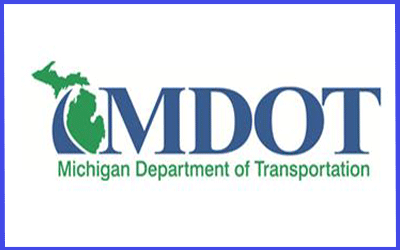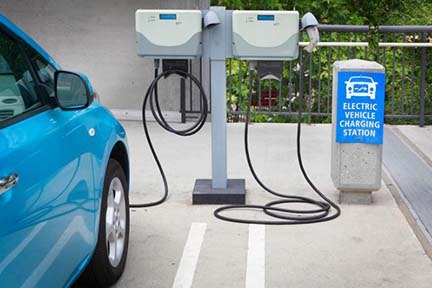
by orionontv | Oct 18, 2024 | Transportation

by orionontv | Oct 9, 2024 | Transportation
Herculean effort results in a new bridge after historic mid-Michigan flooding
On this week’s edition of the Talking Michigan Transportation podcast, a conversation about the extraordinary efforts that culminated with the opening of a new and improved bridge near Edenville.
Listen now: https://www.buzzsprout.com/1374205/episodes/15896337-herculean-effort-results-in-a-new-bridge-after-historic-mid-michigan-flooding

Jack Hofweber, manager of the Michigan Department of Transportation’s (MDOT) Mt. Pleasant Transportation Service Center, reflects on the heavy rains and floods that breached dams and ravaged roads and bridges in several counties in 2020, just weeks after many people went into lockdown because of the pandemic.

In what meteorologists concluded was a 500-year event, the flooding that resulted from up to 7 inches of rain in Midland, Saginaw and surrounding counties damaged homes and property, forced more than 10,000 people to evacuate and most spectacularly destroyed one power dam and severely damaged another.
One year after the floods, an MLive drone video captured the changes.
On Monday, Oct. 7, MDOT Director Bradley C. Wieferich, elected officials, contractors and labor groups celebrated the opening of the new bridge, as highlighted in this video.
With climate change and sustained high water creating headaches for shoreline communities across the state and officials from several state agencies planning for more, the challenge of planning and building more resilient transportation infrastructure, especially during an ongoing period of underinvestment, remains acute.
Other relevant links:
https://www.mlive.com/news/saginaw-bay-city/2020/05/how-a-spring-rainstorm-became-a-500-year-flood-event-in-mid-michigan.html
https://www.michiganradio.org/post/governor-expands-state-emergency-declaration-include-arenac-gladwin-and-saginaw-counties
|
|
|

by orionontv | Oct 8, 2024 | Transportation
I-75 Business Loop/Square Lake Advisory Tuesday, 10/8/24
As the work continues on the I-75 BL/Square Lake project, between I-75 and Opdyke, lane and ramp closures are required:
9am-3pm, Wednesday, 10/9:
- NB I-75 ramp to WB Square Lake will be closed.
- SB I-75 ramp to WB Square Lake will have 1 lane open.
- WB I-75BL/Square Lake will have one lane open from I-75 to Opdyke.
9am, Friday, 10/11 through 5pm, Saturday:
- NB I-75 ramp to WB Square Lake will be closed.
- SB I-75 ramp to WB Square Lake will have 1 lane open.
- WB I-75BL/Square Lake will have one lane open from I-75 to Opdyke.

by orionontv | Sep 25, 2024 | Transportation
FOR IMMEDIATE RELEASE MEDIA CONTACT
September 25, 2024 Diane Cross
CrossD2@Michigan.gov
M-15 paving Sept. 26-29 south of Ortonville, Oakland County
ORTONVILLE, Mich. – A short-term paving project on M-15 (Ortonville Road) south of Ortonville, Oakland County, will begin at 5 a.m. Thursday, Sept. 26, and is expected to be finished by 7 a.m. Monday, Sept. 30. Work will be happening between Grange Hall Road, and Glass Road, north of Seymour Lake Road. This work is weather dependent.
Crews will be milling and repaving the outside shoulders of M-15 in each direction Thursday, Sept. 26, and Friday, Sept. 27. Milling and paving will then take place on northbound M-15 on Saturday, Sept. 28, and then on southbound M-15 on Sunday, Sept. 29. During paving on Saturday and Sunday, traffic will be under flag control.
Portable message boards have been put in place to alert drivers of the upcoming work.
###

by orionontv | Sep 19, 2024 | Transportation
|
How a federal grant could lead to safer wildlife crossings in Michigan
On this week’s edition of the Talking Michigan Transportation podcast, a follow-up to the previous episode highlighting efforts to protect people and animals with creative wildlife crossings on roads.
Listen now: https://www.buzzsprout.com/1374205/episodes/15775958-how-a-federal-grant-could-lead-to-safer-wildlife-crossings-in-michigan

Amanda Novak, a resource specialist in the Michigan Department of Transportation’s Bay Region, helped spearhead the grant application and explains the importance.

As laid out in the project abstract for the grant, the number of wildlife vehicle collisions (WVCs) in Michigan continues to increase annually, worsening risks and costs to drivers. For example, white-tailed deer alone account for more than 55,000 WVCs and cost motorists an average of $130 million per year in Michigan. Additionally, WVCs are a major threat to many wildlife populations in the state, including documented impacts on several threatened and endangered species. Projected increases in tourism, housing development and climate change effects are likely to exacerbate WVC effects on motorists and wildlife in Michigan.
Below is a table outlining the Michigan species they hope to help.
|
Common name
|
Primary focus
|
State listing
|
Federal listing
|
Game species
|
Habitat
|
|
White-tailed deer
|
Public safety
|
Stable
|
Stable
|
Yes
|
Terrestrial
|
|
Elk
|
Public safety
|
Stable
|
Stable
|
Yes
|
Terrestrial
|
|
Moose
|
Public safety
|
Special Concern*
|
Stable
|
No
|
Terrestrial
|
|
Black bear
|
Public safety
|
Stable
|
Stable
|
Yes
|
Terrestrial
|
|
Wild turkey
|
Public safety
|
Stable
|
Stable
|
Yes
|
Terrestrial
|
|
Pine marten ꭝ
|
Species conservation
|
Stable
|
Stable
|
Yes
|
Terrestrial
|
|
E. massasauga rattlesnake
|
Species conservation
|
Threatened*
|
Threatened*
|
No
|
Semi-aquatic
|
|
Blanding’s turtle
|
Species conservation
|
Special Concern*
|
Stable
|
No
|
Semi-aquatic
|
|
* Listed in the Michigan State Wildlife Action Plan
ꭝ Population highly fragmented with threats to connectivity
|
|
† Listed in the 2016 Federal Register
|
Podcast photo courtesy of the Michigan Department of Natural Resources.
|
|
|
|
|

by orionontv | Sep 5, 2024 | Transportation








